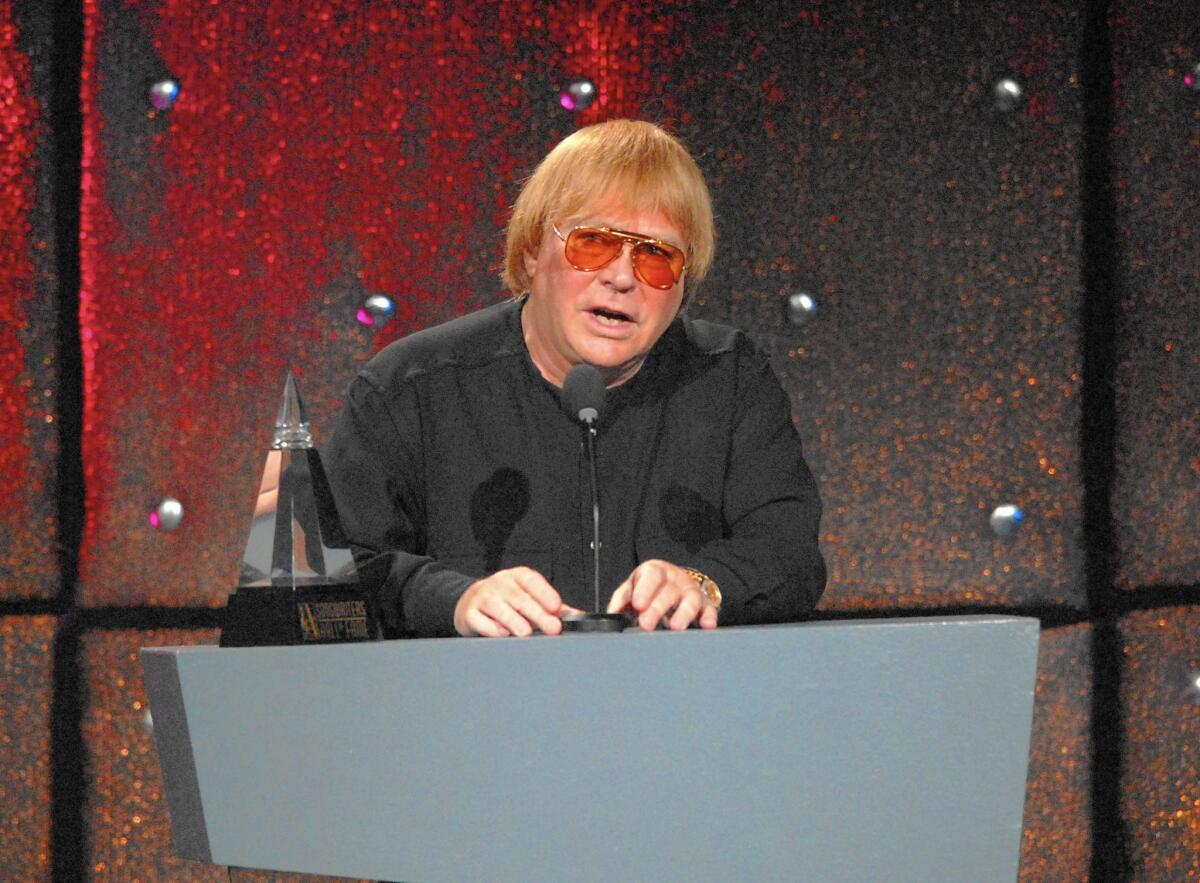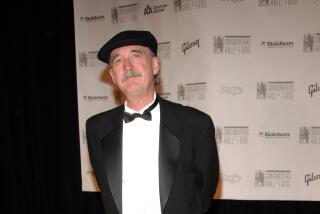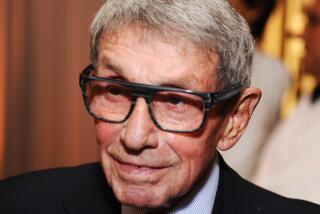Michael Masser dies at 74; wrote hits for Diana Ross, Whitney Houston

Michael Masser, whose hit-making collaborations with Whitney Houston and Diana Ross helped catapult the pop divas to new heights and propelled him to songwriting fame, has died at his home in Rancho Mirage. He was 74.
A stockbroker before switching to music, Masser died July 9 and had been deteriorating since a stroke three years ago, said Kurt Vitolo, his business manager.
Masser composed lush melodies that brought a universal sweep to lyrics of songs with widely disparate points of view, including “Saving All My Love for You,” which depicts Houston as a woman in a dead-end affair with a married man, and “The Greatest Love of All,” which he wrote with Linda Creed for a 1977 documentary about boxing legend Muhammad Ali.
George Benson recorded the latter song for the film “The Greatest,” but it was Houston’s version, which Masser produced for her 1985 debut album, that pitched it into the pop pantheon. It became Houston’s signature song and Masser’s biggest hit.
His partnership with Houston followed earlier collaborations with stars including Ross, for whom he and Gerry Goffin wrote the Oscar-nominated “Theme From Mahogany (Do You Know Where You’re Going To),” and Peabo Bryson and Roberta Flack (“Tonight, I Celebrate My Love”).
Houston was an unknown talent when he accompanied producer Clive Davis to a New York nightclub where she was performing. When Masser walked in, she was singing “The Greatest Love of All”:
The greatest love of all
Is easy to achieve.
Learning to love yourself
It is the greatest love of all.
“Houston’s legacy … will always be permanently indebted to Michael,” Davis, the singer’s longtime mentor, said in a statement last week about Masser, whose hits for the singer also included “Didn’t We Almost Have It All” and “All at Once.”
At the time he and writing partner Creed were crafting “Greatest Love of All,” he had just returned from a stirring trip to Jerusalem. The song “just came right from my heart,” Masser told the Chicago Sun-Times in 1988. “I think people relate to its message that you can do whatever you set your mind to doing.”
Masser was proof of the power of that thought.
Born in Chicago on March 24, 1941, he grew up in a Jewish family with parents who wanted him to become a lawyer. An obedient son, he attended law school at the University of Illinois and became a successful stockbroker and theatrical agent in New York. He had what he described as a “seemingly perfect life,” with a wife, two children and a farm in Vermont, but he was unhappy.
At the urging of a friend, he went to a psychiatrist and said that what he really wanted to do was write music.
“He said, ‘What’s the problem with that?’ I told him that didn’t go over well in my family,” Masser recalled in the Chicago Sun-Times. “He listened, took my money and said, ‘Here’s a note of permission to write music. That’s all you need to clear your conscience.’ ”
At 30, Masser started to write music, even though he had no formal training beyond piano lessons in high school. He sent a song to music publisher Lou Levy, who forwarded it to Johnny Mercer, the Oscar-winning lyricist-composer.
Mercer liked it enough that when Masser’s marriage broke up, he offered the aspiring songwriter temporary lodging in his guest house in Los Angeles.
“The biggest thing I got from Johnny was, ‘Don’t rush a song,’ ” Masser recalled in the Palm Springs Desert Sun in 2002.
After talking his way into Motown’s offices, Masser spent two years working with Ross on “Touch Me in the Morning,” which he said was partly inspired by the end of his marriage. It reached No. 1 on the pop charts, leading Motown founder Berry Gordy to let Masser create the score for “Mahogany,” the first film Ross made after her successful acting debut in “Lady Sings the Blues.”
Gordy told the Desert Sun that “Touch Me in the Morning” and the “Mahogany” title song, “Do You Know Where You’re Going To,” sustained Ross’ career in the period following her split from the Supremes.
Masser’s other hits include “So Sad the Song” for Gladys Knight, “Miss You Like Crazy” for Natalie Cole, “First You Have to Say You Love Me” for Neil Diamond, and “Someone That I Used to Love” for Barbra Streisand.
He was inducted into the Songwriters Hall of Fame in 2007.
His survivors include his wife, the former Ogniana Drandiyska; two daughters, Jennifer Convery and Aleksandra Rouschkolb; a son, Sean Masser; two grandsons; and a sister, Rhoda Lev.
Twitter: @ewooLATimes
Times staff writer Mikael Wood contributed to this report.
More to Read
Start your day right
Sign up for Essential California for the L.A. Times biggest news, features and recommendations in your inbox six days a week.
You may occasionally receive promotional content from the Los Angeles Times.







